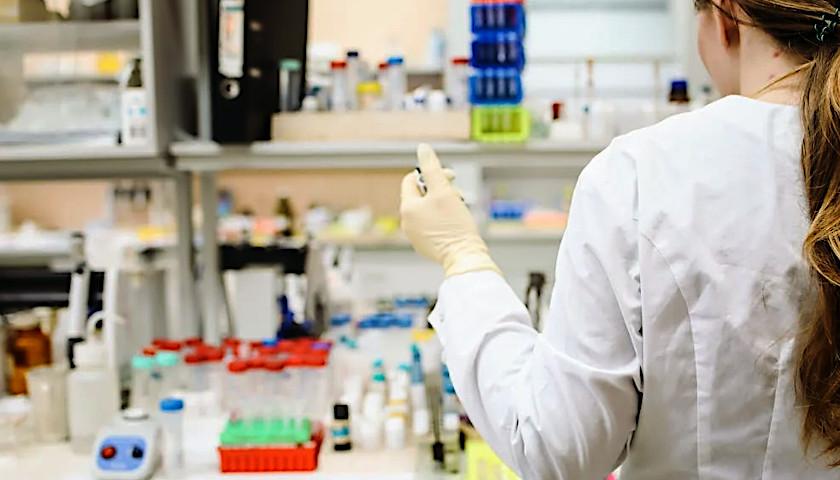by Heather Carson
It’s tomato season on our hobby farm. This year I planted an unprecedented variety of tomatoes since I got some for free from the local feed store. So into the ground they went. I figured if I got some fruit, great, and if not, it was worth a try anyway.
I’m pretty relaxed about my gardening efforts due to limitations from the two autoimmune diseases I live with. I’ve been dealing with a flare- up for some time, which has led me to reevaluate how I’m eating in an effort to reduce inflammation. That’s where the homegrown tomatoes come in.
I was diagnosed with my first autoimmune disease at age 24. I developed intense fatigue, brain fog, and constant drowsiness. I felt like I could barely lift my limbs. It came at the worst possible time; I was working toward completing my master’s degree and beginning a new job in my field of counseling. Working toward my license and learning new skills required intense focus, but I could barely get out of bed. My doctor determined that my thyroid was not functioning properly. I was given a pill and sent on my way without any discussion of diet or lifestyle changes. I was not the same person after this diagnosis.
Unfortunately, only three years later, I received another, scarier diagnosis of psoriatic arthritis. My joints simply stopped working properly, swelled, and brought on intense pain. It took months to figure out what was going on. I had to have my knees drained of fluid so I could walk. Once the diagnosis was made, I was again given several pills and sent on my way. My life seemed derailed permanently by two diseases, and I was only 27 years old. It would be more than a decade before I was able to return to myself through the healing power of good, clean food.
Food is essential to our existence, but the quality of the food we eat is even more important to quality of life and longevity. During my childhood, I was mostly fed ultra-processed foods. Both my parents worked outside the home, and the food offerings at school or day care weren’t very healthy. My grandparents’ house was the only place where I was consistently offered home-cooked, whole, unprocessed food.
A diet of foods that “are made mostly from substances extracted from foods, such as fats, starches, added sugars, and hydrogenated fats” is associated with many health issues including diabetes, heart disease, and obesity. In the United States, 73 percent of the food on the grocery store shelves in America is ultra-processed; the U.S. is currently the top-ranked country for UPF consumption in the world.
Finally, a doctor whose credentials included naturopathy and functional medicine suggested I remove gluten and processed foods from my diet to reduce the symptoms of the thyroid disease. “Eat whole, unprocessed food. Nothing from a box,” she encouraged.
I began to change my diet as the doctor had suggested. The transformation was astounding. Within five months, most of the symptoms of inflammation–such as eczema, rosacea, general brain fog and fatigue–were gone. Even the joint pain from the arthritis improved. While I’d never been particularly overweight, I lost four clothing sizes within five months. I hadn’t felt that good in over a decade.
This reprieve lasted for about three years, after which I began to rapidly gain weight. We’d just moved to our hobby farm, which was very stressful. I had a miscarriage right after we’d moved as well. Later that year, I was diagnosed with appendix cancer. I underwent two surgeries which cost me the entire right side of my colon. The stress of recovery seemed to kick me into early menopause, and I began to experience mood changes, continued weight gain, sugar cravings, and more. I began to slide back into less clean eating habits while my level of physical activity increased with work on our farm. I was exhausted. I saw a primary care doctor, an oncologist, a surgeon, and an OB-GYN. I asked about dietary changes and received little to no advice, but continued to have increased joint pain, low energy, and crippling anxiety.
This past year, when I began to experience heart problems, I’d finally had enough and did some research. I discovered that I could safely go on hormone replacement therapy to treat the symptoms of estrogen deprivation from menopause. Within three months of starting these hormones, my cardiac symptoms calmed down along with my anxiety, and I began to evaluate my situation with a new clarity. It was time to clean up my diet again.
Recently, Dr. Casey Means, a Stanford-educated doctor and former surgeon, released a book titled Good Energy where she describes the current health crisis in the United States. It turns out I’m not alone. Alongside her brother (who has equally impressive credentials from Harvard Business School), Dr. Means points out that it’s “not normal for 74 percent of the country to be overweight or obese, for fifty million people to have autoimmune diseases, or for 25 percent of young adults to have fatty liver disease.” And yet here we are.
Dr. Means points out that there have been significant changes in the quality of our food, lifestyle, and environment in the last hundred years. She challenges the assumption that disease is often random or hereditary and that we are powerless to fight it. We have created a brewing pot of metabolic dysfunction. We are both over-nourished (from eating too much) yet deficient in necessary nutrients. The food we eat has been tampered with so much that it’s barely recognizable as a food.
The first step toward healing may be as simple as trusting your own body. Dr. Means suggests that we “trust the system on acute issues, ignore it on chronic.” Our current medical system is not equipped to help us thrive. Most doctors are taught to put out fires, to save our lives in the event of a crisis, but there’s simply no incentive within the system to prevent patients from getting sick in the first place. What’s worse, most medical schools do not teach courses on nutrition, rendering it an afterthought in the medical field.
But we must eat healthily if we want to heal. Dr. Means argues, “The environment for the cells of the average modern human is now radically different from what the cells expect and need.” Starting with our diet, we can begin to turn this ship around.
As I begin a new chapter in my journey toward health, I can see how fortunate I am to live on a hobby farm. My desire to grow and consume organic, whole food is a good one. But you don’t have to live on a farm to access healthy food. Most cities have farmers markets that offer locally grown fruits and vegetables, often heirloom and beautiful. Many vegetables can be grown in a pot on a sunny deck or porch with very little effort. Daily walks, meditation and prayer, regular bedtimes, and realistic expectations for oneself can also work wonders.
If you are one of the millions of Americans suffering from disease, dependent on pain meds just to live, I hope you’ll consider reading Dr. Means’ book Good Energy. She optimistically suggests that our symptoms of disease are a gift. They offer information, a window into our body’s needs and how to meet them. It has given me a sense of hope that I can not only continue to live, but live well, and age well.
– – –
Heather Carson is a homeschooling mother of eight and lives on a hobby farm. She enjoys teaching her children, writing, gardening, and Saturday dates with her husband of 21 years.





